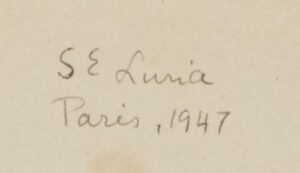Louis Pasteur (1822-1895) was in the very top tier of 19th century scientists, and is still among the best known. For generations he served as a model of the scientist-as-hero, so it isn’t surprising that while the MIT Libraries own many books written by Pasteur, we own even more that are about him. In addition to a vast number of scientific tracts written by others in response to his groundbreaking work, Pasteur himself is the subject of numerous biographies, an Oscar-winning 1930s Hollywood biopic, and a popular drama by the French playwright Sacha Guitry. The centennial of his birth was apparently too large an event to be contained within a single year: in 1923 Time Magazine reported flatly that “in all parts of the civilized world,” celebrations of the man’s life would simply continue beyond the end of 1922, in order that his greatness might be adequately acknowledged.
Among other accomplishments, Pasteur was the first to demonstrate that fermentation was attributable to the presence of specific organisms, as opposed to mere chemical activity. He then went on to devise a practical method for its prevention. He discovered vaccines first for chicken cholera and then for anthrax, and would go on to play a key role in developing the rabies vaccine. A central figure in the development of the germ theory of disease, he’s honored for numerous achievements. His work had widespread scientific influence and saved countless lives. Louis Pasteur is the rare individual who’s not only a household name, but whose name itself – transmuted into an adjective – actually appears on several food items in the typical home, more than a hundred years after his death.
In this volume, Pasteur argues authoritatively that in the absence of specific microorganisms, fermentation is impossible.  Our copy of the book is noteworthy for its provenance: purchased in Paris by Salvador E. Luria in 1947, it was later presented by him to the MIT Libraries. Luria, a Nobel Prize winning microbiologist, was an MIT professor and the first director of MIT’s Center for Cancer Research.
Our copy of the book is noteworthy for its provenance: purchased in Paris by Salvador E. Luria in 1947, it was later presented by him to the MIT Libraries. Luria, a Nobel Prize winning microbiologist, was an MIT professor and the first director of MIT’s Center for Cancer Research.

